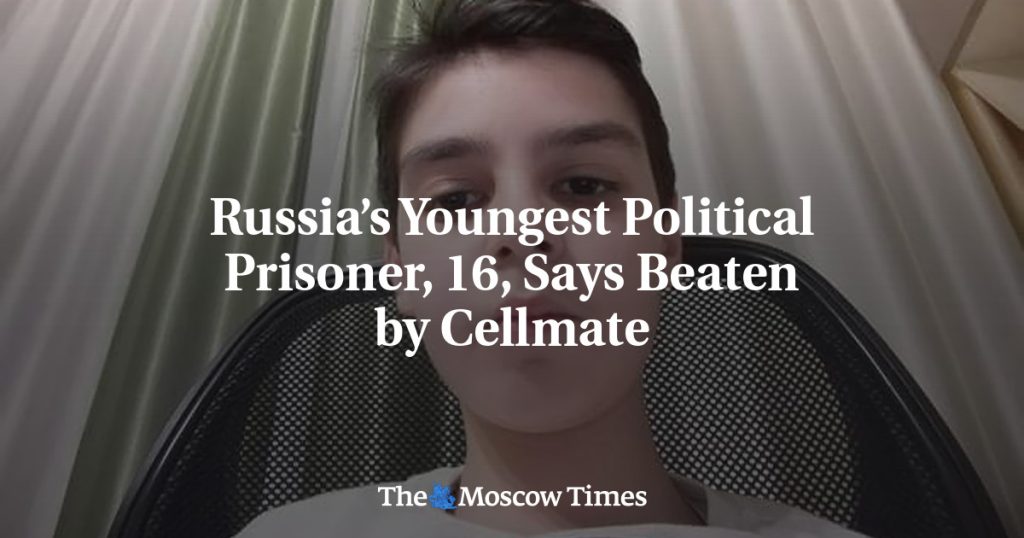A 16-year-old Russian schoolboy, Arseniy Turbin, who is currently serving five years in a juvenile colony for allegedly attempting to join the Freedom of Russia Legion, has reported being subjected to beatings by his cellmate in the Moscow detention center where he is being held. He wrote a letter to his mother describing how his cellmate, Azizbek, hit him on the head and threatened him with further violence. Turbin’s mother also mentioned that Turbin had been placed in solitary confinement for a week in September after a conflict in his cell, highlighting the difficult conditions he is facing in detention.
Turbin was sentenced to five years in a juvenile correctional facility at the age of 15 on charges of participating in terrorist activities. Prosecutors accused him of trying to join the Freedom of Russia Legion, a paramilitary unit of Russian nationals fighting on the side of Ukraine, which Russia designated as a terrorist organization. However, reports from Mediazona suggest that evidence in Turbin’s case was falsified by FSB investigators. Despite FSB agents claiming that Turbin had admitted during an interrogation to planning to join the legion, a transcript of the interrogation published by Mediazona showed no such admission was made.
The Nobel Peace Prize-winning Memorial human rights organization has designated Turbin as a political prisoner, highlighting concerns about the validity of the charges against him. In addition, Russia’s state financial watchdog added Turbin to its list of “terrorists and extremists,” further complicating his situation. The media coverage of Turbin’s case sheds light on potential injustices within the Russian legal system and the treatment of political prisoners, raising questions about the fairness of the process and the validity of the evidence used against him.
The challenges facing independent journalism in Russia have been further highlighted by the recent designation of The Moscow Times as an “undesirable” organization by Russia’s Prosecutor General’s Office. This labeling, along with previous classification as a “foreign agent,” has put the staff of The Moscow Times at risk of prosecution. The authorities have cited concerns that the work of The Moscow Times discredits decisions made by the Russian leadership, indicating a broader crackdown on media organizations critical of the government. Despite facing these challenges, journalists at The Moscow Times continue to strive to provide accurate and unbiased reporting on Russia.
Support for independent journalism in Russia is crucial in the face of repression and attempts to silence dissenting voices. The journalists at The Moscow Times are committed to defending open and independent reporting, despite the risks involved. Readers are encouraged to support their work, no matter how small, to ensure that independent journalism can continue to thrive in Russia. By standing with journalists facing censorship and suppression, individuals can make a significant impact in promoting transparency and accountability in the country’s media landscape.















